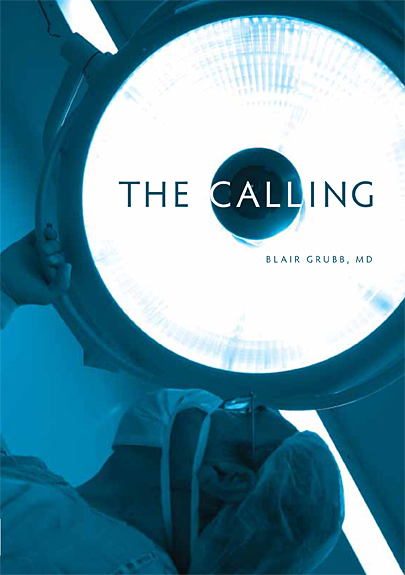 Twenty years ago, UT Physician and Professor Dr. Blair Grubb attended a conference in France and was invited to dinner by the family of a young child he had treated.
Twenty years ago, UT Physician and Professor Dr. Blair Grubb attended a conference in France and was invited to dinner by the family of a young child he had treated.
During an after-dinner conversation, the child’s grandmother left the room and returned with a large menorah, a type of candelabra lit during the Jewish holiday of Hanukkah, to give to Grubb, who is Jewish.
The woman was a child in France during World War II and remembered seeing the family of her best friend, who was Jewish, being forced into a truck at gunpoint. She found the menorah in their home, and recognizing it as something important to her friend, took it home with her.
She told Grubb she wanted him to accept the menorah as a gift.
“I was extremely emotionally distressed by this, partly because so many people died in the Holocaust,” Grubb said. “For a long time, I had trouble even talking to anyone about it.”
Eventually, his wife suggested he write down what happened, and after completing the short essay, Grubb submitted it to the journal Annals of Internal Medicine.
“I’ve submitted academic papers to journals before, and it usually sits on an editor’s desk for months before it’s even looked at,” Grubb said. “This essay was only there for a few days before the chief editor called.”
The editor told Grubb that he wanted to publish the story in the next issue, which was the following month.
“It ended up coming out on the first night of Hanukkah in 1996,” Grubb said. “I received about 500 or 600 letters — the greatest response I’d ever gotten on a piece of writing.”
That essay, “It Should Once Again See Light,” is one of 35 stories in The Calling, a collection of Grubb’s work focusing on the interactions between doctors and patients recently published by The University of Toledo Press.
“I wrote the stories in part to remind us that we’re all human, that we’re all connected,” Grubb said. “Sometimes, people emphasize too much on our differences and don’t think about our similarities.”
Grubb continued writing short essays for Annals of Internal Medicine and other physician journals after “It Should Once Again See Light” was published; some of these pieces are collected in The Calling.
“Eventually, I started to write about life,” he said.
Other life stories in The Calling include the title tale about Grubb’s friendship with a young patient and “My Dear Child” about an unlikely connection and companionship between two patients.
To Grubb, UT Distinguished University Professor of Medicine and Pediatrics, and director of the electrophysiology services at UT Medical Center, being a physician means more than rushing from patient room to patient room.
“Medicine is the most human of the sciences,” Grubb said. “Medicine allows us to have extremely meaningful interactions, but only if we let them.”
To read more of Grubb’s meaningful interactions, purchase a copy of The Calling for $15 at UToledoPress.com.